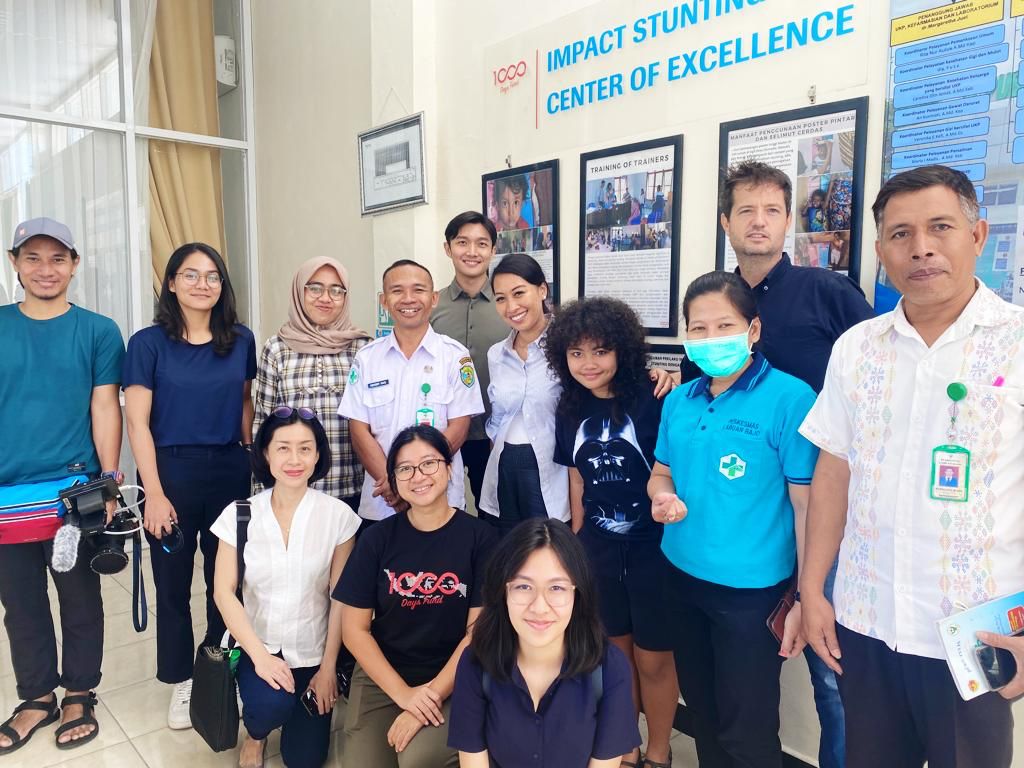Despite being known as one of Indonesia’s top-notch travel destinations, my first trip to Labuan Bajo, Manggarai Barat, West Nusa Tenggara, was not for a typical vacation.
It was for a client of ours – the 1000 Days Fund – a non-profit organization that believes stunting prevention goes beyond food aid, but rather in investing in community health workers.
Prior to the trip, Maverick was asked to assist two journalists from Antaranews and Deutsche Welle for a site visit to Manggarai Barat, where the 1000 Days Fund operates. The purpose was to see firsthand and report on what the 1000 Days Fund has been working on to prevent stunting.
I was, of course, nervous. It was the first time I had gone on a business trip, all by myself, assisting journalists.
I did what I could do. Besides praying for a successful trip, I got in touch with both the journalists to ensure that they were all prepped up before the trip and informed on what the site visit was going to be like.
Fast forward to when we finally stepped foot in Labuan Bajo. I couldn’t help but to drop my jaw when we were greeted with clear blue skies, islands looming in the background, busy boats roaming around the harbor, finally away from Jakarta’s hustle and bustle.
It is exactly what I had in mind when I had thought of the place, clear sunny skies and beaches.
That was until along the way I realized that it is so much more than that. Labuan Bajo and the villages in Manggarai Barat is also a strong community that holds each other’s back.
In Indonesia, stunting is a public health issue that continues to demand comprehensive interventions. Back in 2019, the stunting rate in Manggarai Barat reached 43 percent, it was among the highest in the world. It is a complex problem that persists even in communities that are surrounded with marine resources like in Bajo.
The 1000 Days Fund began their work in Manggarai Barat to slash the stunting rate by working together and investing in frontline health workers (bidan desa) and community health workers (kader posyandu) so that they can give proper education about stunting to parents or caregivers.
During the two-day visit, we had the chance to visit homes as well as health facilities and engage in conversations with the caregivers and health workers. Each village that we visited had different challenges, and extreme poverty nor economy was their main issue.
In Komodo Village, for instance, the parents were already aware of what stunting is, however poor feeding practices still persist. When we hopped onto Papagarang Village, the main challenges were the lack of clean water and proper sanitation.
Before there were any health facilities in Komodo Village, the moms relied on “dukun” or traditional healer that often performs rituals and offer guidance to treat illness. There were times when it was really hard for the health workers to get the moms to check regularly to the health facility.
There was even a myth in Labuan Bajo that feeding kids with coffee and rice would strengthen their children’s hearts.
As much as food is important, it goes beyond that. Prenatal care, proper hygiene, vitamins intake, exclusive breastfeeding are the things people should take into account in preventing stunting. Many people just don’t know that, yet.
Beyond all these challenges, hope shines through. I got to meet what may seem as ordinary people but really local heroes disguised as professional health workers and community health workers.
These health workers and volunteers are, like Nigel in the Devil Wears Prada once said, a shining beacon of hope for their community. They have shown persistence in helping their community to fight against stunting by going door-to-door, educating people about stunting and the urgency of it, busting myths, and encouraging them to seek health consultation from health facilities.
Thanks to the support of the 1000 Days Fund, these health workers and volunteers are equipped with the knowledge and a tool called smart chart that enable them to effectively communicate about stunting to caregivers using their own language.
The health workers we met were predominantly locals, born and raised within the community. Their understanding of their people and effective communication skills were evident.
When asked what drives them to serve the community, the answer was simple. It’s their home and family.
In 2023, the stunting rate in Manggarai Barat has dropped to 9 percent.
They still have a long way to go. Beyond the work between these health workers and the 1000 Days Fund, an unwavering collaboration with other stakeholders is essential in their battle against stunting.
All in all, the visit was an eye-opening experience with meaningful encounters for both the journalists and me. You can also check the stories on Antaranews’s page!
I’m glad my first trip to Labuan Bajo was not merely for vacation. I got the chance to see beyond the beaches and clear sunny skies. I got to meet the real heroes in stunting prevention.
Written by Inez Ignatzia
